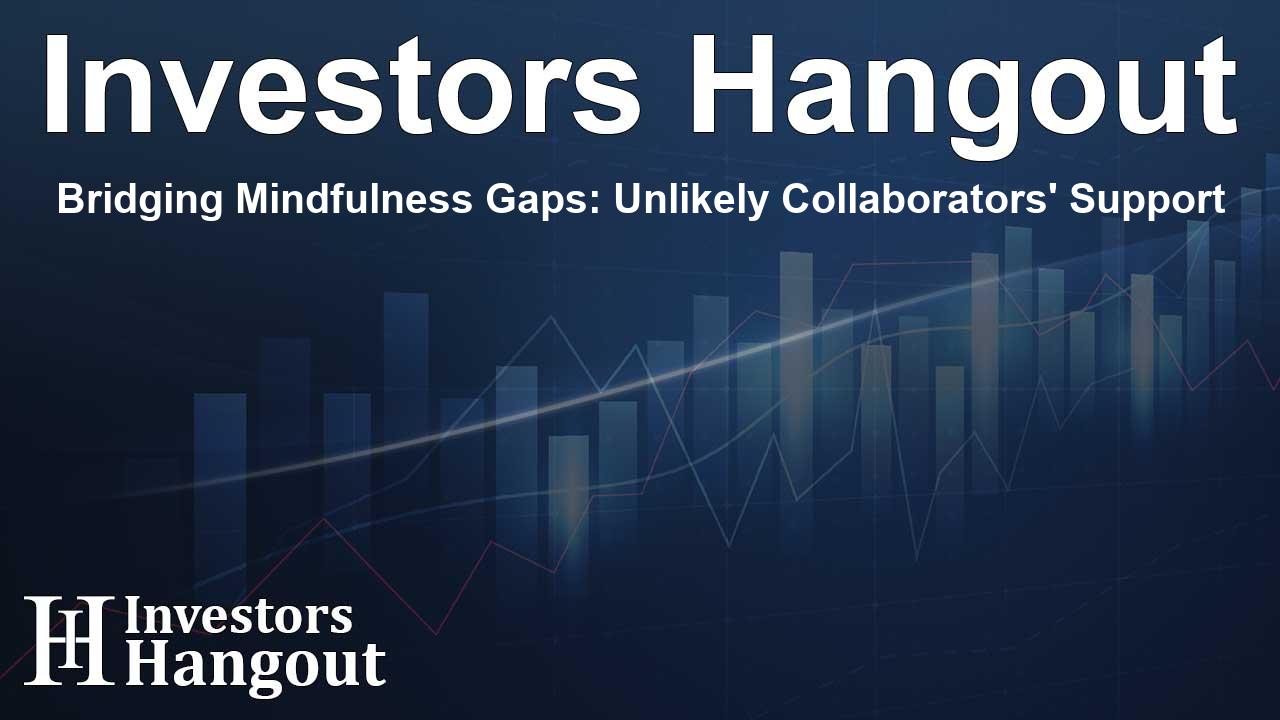Bridging Mindfulness Gaps: Unlikely Collaborators' Support

Unlikely Collaborators Engages in Mindfulness Advocacy
In a significant step towards inclusivity, Unlikely Collaborators has provided a grant to Mindfulness First for their innovative program, Making Mindfulness Accessible (MMA). This initiative targets marginalized groups who often lack access to mindfulness resources, particularly those facing challenges like visual or hearing impairments. With a dedicated duration of three years, this project is poised to transform the delivery of mindfulness education, making it more equitable for everyone.
Empowering Diverse Populations
The MMA program focuses on reaching out to populations that have historically been underrepresented in mindfulness practices. With a comprehensive approach, Mindfulness First intends to expand its existing curriculum, tailoring resources to meet varied learning requirements. This includes specialized training for instructors to ensure that mindfulness can be practiced by individuals from all walks of life. By prioritizing inclusion, this initiative reinforces the idea that mental well-being should be a universal right.
Love for Mindfulness
Mindfulness First is driven by an unwavering commitment to mental health education, boasting an 11-year track record in serving underprivileged communities, particularly within schools and special education. The grant from Unlikely Collaborators allows the organization to fill critical gaps in its current offerings through the development of inclusive training materials and supportive environments. This concerted effort aims to empower those who might feel excluded from typical mindfulness activities.
Building the Future of Mindfulness Education
With plans to globally launch their revised curriculum in 2027 after a pilot phase in 2026, Mindfulness First aims to make their content widely accessible. This proactive measure will enhance mindfulness education on a grand scale, fostering understanding and compassion in communities across the world. The focus on making educational resources accessible is both timely and necessary.
A Transformative Mindset
Unlikely Collaborators is a nonprofit founded and led by Elizabeth R. Koch, with a vision of storytelling that fosters deep human connections and resolves conflicts. The organization's mission hinges on the belief that conflicts often stem from unrecognized internal struggles. Through their various initiatives, they encourage projects that prompt reflection and discussions that can lead to transformative outcomes.
The Perception Box™ Framework
At the core of their approach is the innovative Perception Box™ framework devised by Koch. This framework delves into the unrecognized biases and beliefs that shape individual perceptions. It helps illuminate how our subjective views influence our interactions and responses to others. By dissecting and understanding these mental constructs, individuals can cultivate empathy and creativity, propelling societal change.
Voices of Change in Mindfulness
Sunny Wight, Co-Founder and Executive Director of Mindfulness First, remarked, "Our goal is to provide equitable tools for self-efficacy and mental health well-being. Through Making Mindfulness Accessible, we aim to empower individuals who have historically faced barriers to mindfulness practices, including those with disabilities and neurodivergences. With Unlikely Collaborators' support, we are ensuring these essential resources can benefit everyone, regardless of their identity or abilities."
Fostering Mindfulness in Communities
Elizabeth R. Koch, Founder of Unlikely Collaborators, echoed this commitment, stating, "Mindfulness helps us pause and notice what’s really going on inside, especially in moments of overwhelm or disconnection. We deeply appreciate Mindfulness First’s efforts to make this kind of Perception Box awareness accessible and tangible." This appreciation reflects a shared vision for a more connected and understanding society.
Mindfulness First has made profound impacts since its inception in 2013, reaching out to over 500,000 individuals, particularly in Title 1 schools and special education programs. Their innovative curriculum and community outreach programs continue to garner attention for making mindfulness education both practical and relevant.
Frequently Asked Questions
What is the Making Mindfulness Accessible initiative?
This initiative aims to expand mindfulness practices to marginalized populations, making it accessible for individuals with diverse learning needs.
How long is the grant from Unlikely Collaborators?
The grant supports a transformative project designed to last for 36 months.
What is the goal of Mindfulness First?
Mindfulness First seeks to integrate evidence-based mindfulness education into various communities, enhancing mental health and resilience.
Who founded Unlikely Collaborators?
Unlikely Collaborators was founded and is chaired by Elizabeth R. Koch.
What unique framework does Unlikely Collaborators use?
The Perception Box™ framework, designed by Koch, helps explore and understand biases and beliefs that influence perception and interactions.
About The Author
Contact Ryan Hughes privately here. Or send an email with ATTN: Ryan Hughes as the subject to contact@investorshangout.com.
About Investors Hangout
Investors Hangout is a leading online stock forum for financial discussion and learning, offering a wide range of free tools and resources. It draws in traders of all levels, who exchange market knowledge, investigate trading tactics, and keep an eye on industry developments in real time. Featuring financial articles, stock message boards, quotes, charts, company profiles, and live news updates. Through cooperative learning and a wealth of informational resources, it helps users from novices creating their first portfolios to experts honing their techniques. Join Investors Hangout today: https://investorshangout.com/
The content of this article is based on factual, publicly available information and does not represent legal, financial, or investment advice. Investors Hangout does not offer financial advice, and the author is not a licensed financial advisor. Consult a qualified advisor before making any financial or investment decisions based on this article. This article should not be considered advice to purchase, sell, or hold any securities or other investments. If any of the material provided here is inaccurate, please contact us for corrections.
